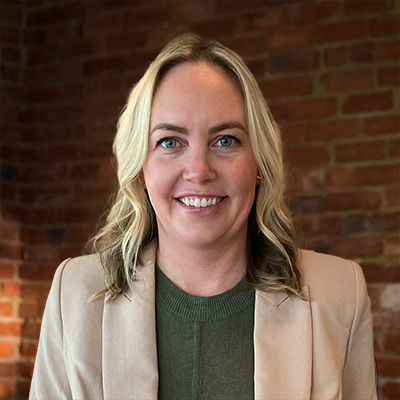Published in the February issue of Virginia Business Magazine, the personal injury law firm of Allen, Allen, Allen & Allen ranks #9 among the Best Places to Work in Virginia in the Mid Size Category.
Virginia’s top companies treat employees like partners
Source: http://www.virginiabusiness.com/index.php/news/article/giving-workers-a-seat-at-the-table/309747/
January 27, 2011 6:00 AM
by M.J. McAteer
In 1967, Aretha Franklin asked for a little R-E-S-P-E-C-T when she got home. Now, going on 50 years later, her anthem of domestic empowerment has morphed into the theme song for the enlightened workplace. At all 50 of the employers on the initial list of the Best Places to Work in Virginia, respect is the foundation upon which employee relations are built.
Virginia Business compiled the list in collaboration with Best Companies Group, a Pennsylvania-based firm that has worked on similar projects with more than three dozen publications.
Best Companies selected the winners based on the results of surveys given to participating companies and their employees. Virginia Business promoted participation in the project by companies through the state with help of the Virginia Chamber of Commerce and the Virginia State Council of the Society for Human Resource Management.
Back when Aretha first belted out her signature song, “the No. 1 value was to make profits, and employee benefits were not allowed to get in the way,” says Flip Brown, a Vermont-based consultant who works with companies to change their business culture.
Not that that autocratic style of management has disappeared. It hasn’t, and it probably won’t, as long as the economy is wobbly, says Douglas M. McCabe, professor of labor relations and human resource management at Georgetown University in Washington, D.C. “Managing by fear,” McCabe says, still can be profitable.
In the long term, though, he believes that companies are likely to be successful if they give employees a voice, treat everyone fairly and handle grievances through procedures such as peer review or an ombudsman.
“A company wants to become known as an employer of choice,” Brown says, because that reputation allows it to attract and retain a superior work force. (See commentary on page 22.) Ninety percent of Fortune 100 companies now have management coaches, he says, specifically to help supervisors forge better employee relations.
So what characteristics are common among the commonwealth’s best places to work?
Good pay is a given. Employees’ satisfaction with compensation and benefits among companies making the list averages 86 percent. With zero exceptions, these companies also offer performance bonuses or incentive programs, and 96 percent have 401(k) or other retirement savings plans.
Some have exceptional perks. For example, employees of the Consumer Electronics Association (No. 6 among midsize companies) are given a $25,000 forgivable note toward the purchase of a house in Arlington County, where the association is based. Colleen Lerro, a communications specialist with the association, says that the note allowed her to buy her first home — at age 24 — in a market in an area where homes sold for average of more than $530,000 last year.
At Richmond-based Kinsale Insurance Co., No. 4 among small companies, everyone gets stock in the company. “I want every employee to come to work every day thinking and acting like an owner,” says President and CEO Mike Kehoe. (The recently formed excess and surplus lines insurer is a portfolio company of Virginia Capital Partners, as is Virginia Business.)
Yet, when queried about what they liked most about their jobs, not one employee interviewed for this story mentioned money first. Instead, whether their job was teaching teenagers to rock climb, coping with the midday crush at a convenience store, or helping to enforce the Clean Water Act, they spoke about the less tangible aspects of their workplace that add up to an atmosphere of mutual respect.
A good relationship with their boss usually came up first. “Seventy-eight percent of employees who leave a company say they leave because of dissatisfaction with their supervisor,” Brown says. “People want managers who are fair and clear,” and at the best places to work in Virginia, they say that’s what they have. Ninety percent of employees of these companies were positive about their supervisors, with workers at small companies posting a whopping 95 percent satisfaction rate.
“The directors are really supportive and open to suggestions and feedback,” says Rene Levin, who works at Wilderness Adventure at Eagle Landing in Craig County, which offers recreational activities such as canoeing and caving. Wilderness Adventure ranked fifth among the best small companies to work for in the commonwealth.
All the employees feel confident and comfortable with their co-workers, says Jennifer Staneart of Allen, Allen, Allen, & Allen, a Richmond law firm ranked ninth among midsize companies. “The supervisors are always willing to listen to their staff.”
Happy employees also feel that they make an essential contribution to their company, and that, in return, the company values their efforts and nurtures their career. An employee survey conducted by Best Companies Group included nearly 20 questions about job satisfaction and the corporate culture, such as “The organization treats me like a person, not a number,” and “I feel part of a team working toward a shared goal.” Both questions received a positive response from 89 percent of the employees of companies that made the list.
“You have to be passionate about what you do,” says Danit Carrier Tal, a management analyst for the Norfolk District U.S. Corps of Engineers, “and most of us [at the Corps] feel we are doing good.” That good includes enforcement of the Clean Water Act, wetlands protection and public engineering projects, such as construction of a medical complex at Fort Belvoir.
Carrier Tal feels their dedication to the Corps’ mission is fully reciprocated. Management “looks out for my best interest and likes for me to be happy and excel,” she says.
“We have individual development plans for each employee,” confirms Col. Andrew Backus, commander of the Norfolk division, which ranked 14th among the best large employers. “We take care of subordinates.”
Sheetz President and CEO Stan Sheetz also believes “inclusion” is important. His Pennsylvania-based convenience store chain, which has 58 stores in Virginia, ranked No. 9 among the state’s best large employers. “We let employees know that ‘you’re welcome here, we want you here, we want you on our team,’ ” Sheetz says. Even entry-level employees get 60 hours of paid training, and 80 percent of Sheetz store managers are promoted from within.
Christina Garms, who manages a Sheetz store in Ashland, says going to work for the company was “the best decision I ever made — and you can call my mother about that.”
In addition to good pay and open lines of communication with her boss, she brings up another theme common among employees interviewed for this story: their employer’s recognition that they face demands outside the office. Garms, a single mother, had been putting in 70-hour weeks at her previous job and had “no quality of life at all.” But Sheetz “is a family business,” she says, with “a really good support system for its staff.”
Like Garms, employees today want jobs that allow them a healthy balance between work and their private lives. “The No. 1 metric,” Brown says, “is not how much money you make. It is how tightly you grip the steering wheel going back and forth to work.”
That said, the employees at the Best Places to Work in Virginia would seem to be on cruise control. And that pays dividends for their employers. Under the category “Overall Employee Engagement,” the survey asked, “Am I willing to give extra effort to help my company succeed?”
The answer from 97 percent of employees of companies that made the list was “Yes.”



